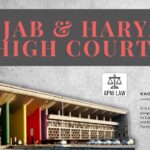Introduction
In Mohammed Saifullah v. Reserve Bank of India & Others, the Madras High Court ruled that police cannot freeze an entire bank account when only part of its balance is involved in a financial fraud. Justice G. Jayachandran held that such sweeping freezing violates the fundamental rights of trade, business, and livelihood. The Court stressed that the investigating agency must quantify the amount involved before ordering any freeze.
Facts of Case
Mohammed Saifullah held a bank account in HDFC Bank. Investigators suspected some money in it was linked to cryptocurrency fraud. Authorities believed ₹2,48,835 in his account was involved in the crime. However, his account contained ₹9,69,580 in total. The local police and the Telangana Cyber Crime Bureau ordered the whole account frozen. The bank complied. Saifullah did not get any formal notice explaining why the freeze occurred. He did not know how long it would remain frozen. Business transactions and his ability to use his own money suffered.
What Court Says
The Court said investigation powers allow a bank to freeze an account only when agencies request it under law. But the Court added that the power must not be applied improperly. Justice Jayachandran said freezing the entire account without stating how much of the funds are allegedly tainted is not lawful. The Court held that citizens have the right to know why their account is frozen. The Court emphasized that business and trade depend on access to one’s funds. Cutting off access harms livelihood. In Saifullah’s case, the Court ordered the bank to unfreeze the account. It allowed the bank to put a lien (a legal hold) of ₹2,50,000, close to the amount under suspicion.
Implications
This decision protects individuals from unduly harsh enforcement actions. Authorities must quantify the allegedly tainted sum before freezing. They must also inform the account holder of the reason and extent of the freeze. The judgment reinforces that freezing without explanation violates constitutional rights. It will affect how police, cyber crime units, and banks conduct financial investigations. In future, frozen accounts must be proportionate. Laws must be enforced in a way that balances investigation needs with the right to trade and livelihood.
Conclusion
The Madras High Court in Mohammed Saifullah v. RBI confirms that law enforcement cannot freeze entire bank accounts arbitrarily. The Court requires quantification and transparency. It safeguards fundamental rights. It ensures that investigations do not destroy the financial life of citizens without due process.








